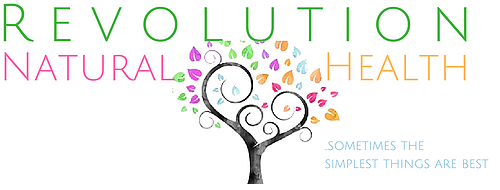
Approximately 6.4 million American adolescents between the ages of 4-17 have been diagnosed with ADHD. This incredibly common behavioral condition leads to inattention, hyperactivity, and trouble remembering details. Medication is usually recommended immediately after an ADHD diagnosis. However alternative options such as diet management, counseling, and changes in routine are often more desireable when handling this condition due to the unsavory side effects of many prescription drugs. Check out our list for the best ways to handle hyperactivity…naturally.
Symptoms of ADHD in children include:
- Difficulty in concentrating and diminished focus
- Easily distracted
- Easily bored
- Difficulty organizing or completing tasks
- Prone to losing things
- Doesn’t listen
- Difficulty in following instructions
- Fidgety behavior, squirming
- Extreme difficulty being still and/or quiet
- Impatience
Natural ways to manage hyperactivity
Cut back on sugar
There seems to be nothing kids love more than a big bowl of sugary cereal, ice cream, or candy. Of course, processed sugar has an incredibly detrimental effect on anyone’s health and it is particularly harmful to kids with ADHD. Excessive sugar intake alters the brain and can affect the neural systems that trigger hyperactivity. Consider cutting back on your child’s sugar intake and provide sources of natural sugar such as fruit for dessert.
Behavioral therapy
Behavioral therapy is a tool used to help train your child to manage their ADHD and allow them to cope and focus on mundane activities. This strategy encourages desired behavior through a reward system and eliminates unwanted actions. It is a very hands-on method that sets up a clear structure of goals and rules for your child and eliminates some of the chaos from the daily routine. Of course, behavioral therapy is not a quick fix and will require a lot of time and investment from the parents; however, it can be used to not only help your child manage day to day life with hyperactivity but help them succeed in the future as well.
Engage your child in exciting exercise
Though a simple, 30-minute, daily walk would have the desired results, many hyperactive children will be turned off by such a low-impact activity. Consider enrolling them in a fun class such as karate, ballet, or swimming. This will allow them to burn off that anxious energy and direct it towards something worthwhile, helping them focus on homework and other stationary activities later in the day.
Spend time outdoors
Nature is often the best cure there is. In a world of screens, stimulation, and constant information, it is important to spend time outdoors with your kid. Take them to the park, go on a hike, explore somewhere new in nature. Studies have shown that just 20 minutes of time in a green space cand help improve concentration in kids with ADHD.
Increase protein
Providing a proper diet for your child is one of the most effective ways to reduce symptoms of ADHD and eliminate behavioral disruptions from the inside out. Research indicates that an imbalance in the areas of the brain that control memory, motor functioning, and emotional regulation is responsible for ADHD symptoms. These systems are referred to as the catecholaminergic systems and are made up of neurotransmitters such as dopamine and norepinephrine which come from the amino acid tyrosine. Researchers posit that an increase in protein could regulate those essential systems and alleviate ADHD symptoms.
Supplement omega-3 fatty acids
The body doesn’t produce omega-3 fatty acids by itself so it is essential that your child is getting these nutrients from their diet or supplements. Found in fish oil supplements and foods such as walnuts, and chia seeds, these omega-3 fatty acids are responsible for regulating brain and nerve function and encouraging cognitive health.
Reduce screen time
Not only does increased screen time take away from hours that kids used to spend playing outdoors in connection with nature, but it can also increase attention issues and exacerbate symptoms of ADHD. It is a good idea to set aside a technology-free day, or limit screen time to 30 minutes per day. Try to stick to the ban as well to encourage your child and improve your own health by finding alternative activities. Work on brain games or puzzles with your kids or allow them to express their creativity through an arts and crafts project. Once you cut back on that empty technology time, your child (and you) will be less likely to seek out electronics and screen distractions.
Help them learn deep breathing
Focused, mindful breathing can help your child wind down and give them something to focus on other than their excess energy and inattention. Teach them breathing techniques that they can take with them to develop positive emotions, self-regulation, and help them stay in the moment rather than being overwhelmed by sensory input.
Establish good sleep patterns
A good, consistent sleep routine is important for health and wellbeing. And it is even more essential for kids with ADHD. Help your children stick to the same time for waking up and going to sleep every day and establish a good pre-bedtime routine. If your child has trouble sleeping, consider putting a fan or white noise machine in their room to eliminate distraction.
Engage their senses
Children with ADHD can perform tasks easier when all of their senses are engaged. Turn chores into sing-a-longs and use various teaching styles that allow for hands-on learning to help them stay involved. Utilizing as many senses as possible helps to keep hyperactive children grounded and their brains organized.
Note: Once your child is diagnosed with ADHD, it is important to take steps to understand them and remain patient with them. Most doctors will recommend medication such as stimulants or suppressants which do provide immediate results but can often cause personality changes and dangerous side effects. Not to mention, these drugs don’t actually cure your child’s ADHD, they merely mask the symptoms and increase focus. Many of the strategies listed above work well in conjunction with medication, but they can also provide stellar results over time without the use of prescription drugs. Always consult with your family practitioner before making any medical decisions for your child and ask them about other alternative treatment options.


